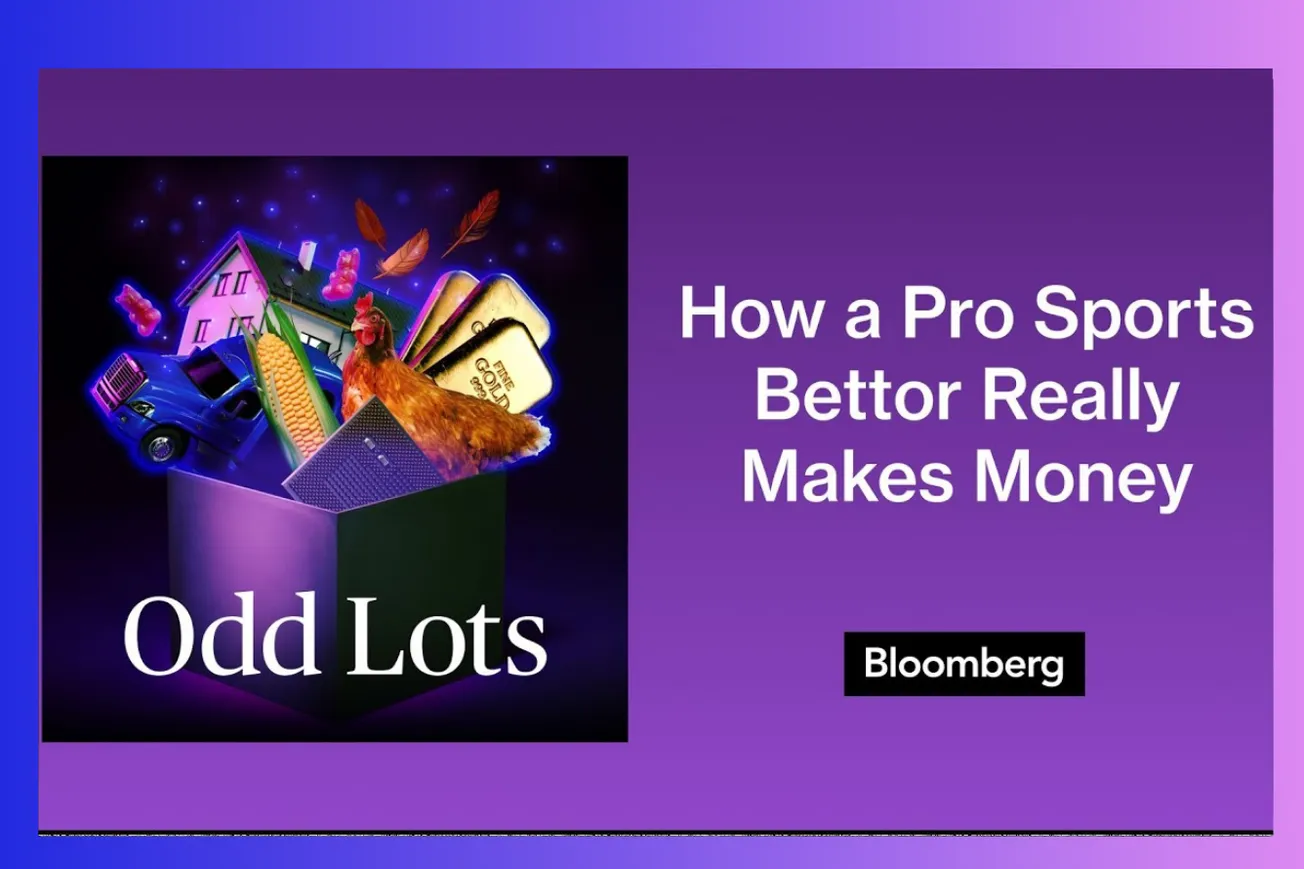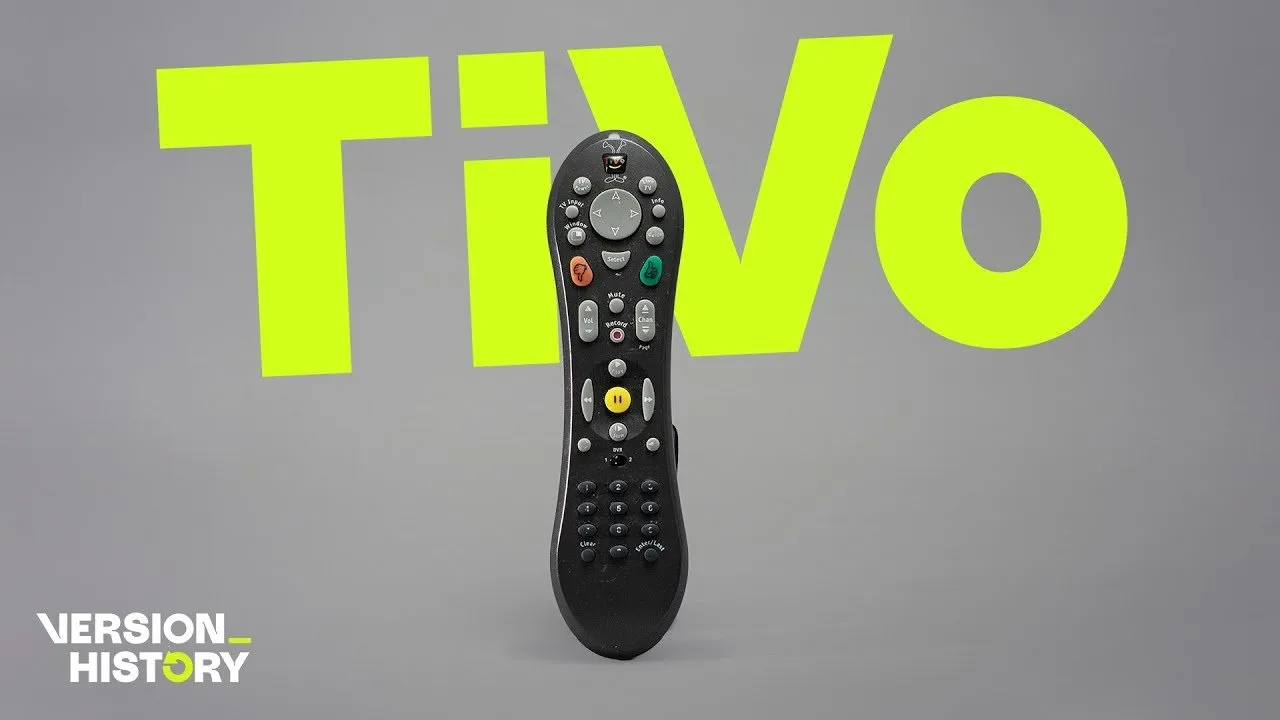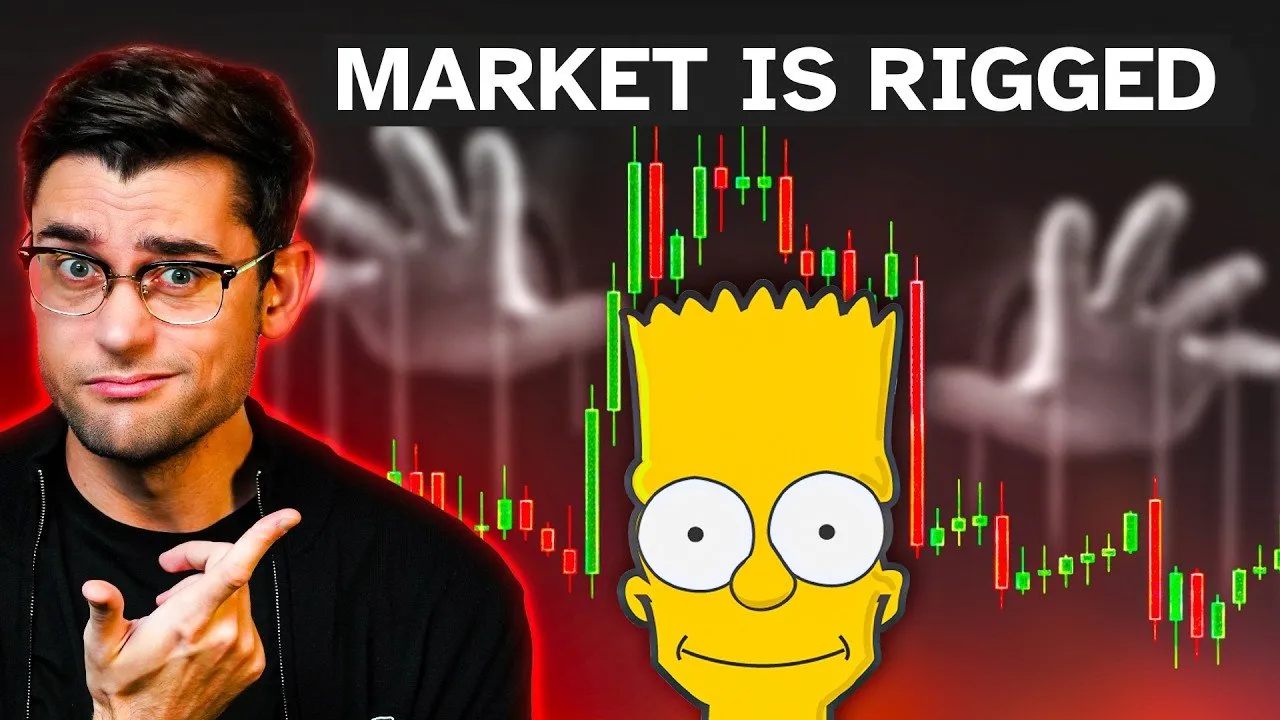Table of Contents
Professional sports bettor Isaac Rose Burman reveals how he beats the odds through market inefficiencies, while sportsbooks use sophisticated detection systems to limit winning players.
Key Takeaways
- Professional sports betting relies on identifying value bets with positive expected returns, not predicting game outcomes accurately
- Sportsbooks use closing line value (CLV) to detect skilled bettors and limit their betting amounts, sometimes to literal cents
- Market-based arbitrage between different platforms offers more opportunities than creating original predictive models for major sports
- Exotic prop bets carry 30-40% house edges compared to 4-5% on main markets, but offer more mispricing opportunities
- The "Holy Grail" involves flipping whale accounts—partnering with big losers who maintain high betting limits from sportsbooks
- Companies like FanDuel and DraftKings only recently became profitable despite controlling odds, due to massive customer acquisition costs
- Sports betting serves primarily as customer acquisition for online casino games, which generate much higher profit margins than sports wagering
- Young men show higher addiction rates to sports betting than traditional gambling due to emotional attachment and overconfidence in sports knowledge
- Regulatory solutions should focus on transparent advertising, mandatory loss tracking, and opt-out rather than opt-in responsible gambling tools
Timeline Overview
- 00:00–12:45 — Vegas and Gambling Evolution: Discussion of Las Vegas' continued success despite nationwide gambling expansion, dynamic pricing strategies, and the proliferation of exotic betting options that mirror financial market derivatives
- 12:45–25:30 — Professional Sports Betting Fundamentals: Isaac Rose Burman explains how professional sports betting differs from casino games through dynamic odds, value identification, and positive expected return strategies rather than accurate game prediction
- 25:30–38:15 — Market Making and Price Discovery: How initial betting lines emerge through market maker sportsbooks like Pinnacle that adjust prices based on smart money action, with derivative prop bets generated by third-party content providers
- 38:15–50:48 — Exotic Bets and Mispricing Opportunities: Why single-player prop bets carry much higher house edges (10-20%) but offer more mispricing opportunities, with sportsbooks adding huge margins to compensate for pricing uncertainty
- 50:48–63:21 — Detection and Limitation Systems: How sportsbooks identify winning players through closing line value analysis and limit successful bettors to cents while expanding limits for big losers through VIP programs
- 63:21–76:06 — Professional Strategies and Account Management: The necessity of maintaining multiple accounts across 20-25 legal sportsbooks, using offshore sites, working with bookies, and disguising betting patterns to avoid detection
- 76:06–88:39 — The Whale Flipping Strategy: How professionals partner with high-profile losing players like Phil Mickelson and Ashton Kutcher who maintain unlimited betting privileges, representing the "Holy Grail" of professional sports betting
- 88:39–101:24 — Industry Economics and Casino Integration: Why FanDuel and DraftKings only recently became profitable despite controlling odds, and how sports betting primarily serves as customer acquisition for higher-margin online casino games
- 101:24–114:09 — Match Fixing and Game Integrity: How betting on low-paid athletes in minor sports creates corruption risks, while NBA players' high salaries prevent game fixing but enable prop bet manipulation by bench players
- 114:09–126:36 — Addiction Crisis Among Young Men: Why sports betting addiction differs from traditional gambling through emotional attachment and overconfidence, with social sportsbooks targeting minors and deceptive advertising practices
- 126:36–139:03 — Regulatory Solutions and Industry Reform: Proposed solutions including transparent loss tracking, honest advertising requirements, opt-out responsible gambling tools, and independent research funding rather than industry-sponsored studies
The Professional Edge: Finding Value in Dynamic Markets
Unlike casino games where the house always wins, professional sports betting becomes profitable because odds constantly change based on new information. This creates opportunities for skilled bettors to identify value—situations where their expected return exceeds the amount staked, regardless of individual bet outcomes.
- Professional sports bettors focus on identifying positive expected value rather than accurately predicting game outcomes, treating betting as a mathematical exercise rather than sports analysis
- The classic example involves betting on an opposing team before sportsbooks adjust odds for breaking news like LeBron James getting injured, locking in favorable prices before market correction
- Even losing ten bets in a row on a coin flip offering $11 returns for $10 stakes would generate long-term profits due to positive expected value mathematics
- Two primary strategies exist: market-based arbitrage identifying mispriced odds across different platforms, and creating original predictive models (much harder for major sports)
- For liquid markets like NFL, NBA, and MLB, very few people can successfully build models that beat market consensus, making cross-platform arbitrage the dominant professional strategy
- The key insight is that sports betting profitability comes from mathematical edges rather than sports expertise, with successful professionals often knowing less about teams than casual fans
How Betting Lines Really Get Set
The initial odds consumers see on platforms like DraftKings and FanDuel emerge from a sophisticated price discovery process involving market maker sportsbooks that adjust lines based on sharp money action before distributing to retail platforms.
- Market maker sportsbooks like Pinnacle and BetCRIS establish initial lines by posting small-limit odds ($50-$100) and adjusting based on which side receives action from professional bettors
- This price discovery process continues until betting activity balances, indicating the market has found efficient pricing that retail sportsbooks then adopt
- Major markets (game winners, point spreads, totals) use this market-driven pricing, while exotic prop bets rely on third-party content providers using algorithmic models
- Different content providers specialize in different bet types: home run props use different models than three-pointer props, with sportsbooks integrating multiple provider feeds
- Sportsbooks accept unlimited action on liquid major markets because they trust the price discovery process, but impose strict limits on prop bets due to pricing uncertainty
- The complexity means sportsbooks essentially become technology platforms aggregating odds from market makers and content providers rather than setting their own lines
The Exotic Bet Trap: High Margins, High Opportunities
Prop bets and same-game parlays offer the highest profit margins for sportsbooks but also create the most mispricing opportunities for skilled bettors, creating a cat-and-mouse game around betting limits and detection.
- Single-player prop bets carry 10-20% house edges compared to 4-5% on major markets, while same-game parlays can reach 30-40% house edges through correlation miscalculations
- Higher margins exist because prop bets are much harder to price accurately, requiring sportsbooks to add larger cushions against potential losses from inside information or modeling errors
- Sportsbooks heavily promote these high-margin bets through advertising and app design, knowing most recreational bettors will lose money much faster than on traditional wagers
- However, the difficulty of pricing exotic bets creates more opportunities for professionals to find genuine mispricings, particularly in less liquid markets like tennis or lower-tier sports
- Betting limits on prop markets are much lower than major markets, preventing professionals from wagering meaningful amounts even when they identify clear value
- The proliferation of exotic betting options serves primarily as customer acquisition tools, making sportsbooks appear comprehensive while generating higher profit margins per dollar wagered
The Detection Game: How Sportsbooks Identify Winners
Sportsbooks use sophisticated systems to identify skilled bettors through closing line value analysis, limiting successful players while expanding betting privileges for consistent losers through VIP programs.
- Closing line value (CLV) measures whether a bettor's odds improved between placement and game start, indicating they identified value before the market corrected
- Professional bettors with positive CLV get limited to tiny amounts (sometimes literal cents) regardless of their actual win-loss record, because sportsbooks know they'll eventually profit
- The system creates perverse incentives where losing money doesn't protect accounts—players can lose thousands while still getting limited due to positive CLV patterns
- Successful bettors must maintain accounts across 20-25 legal sportsbooks in jurisdictions like New Jersey, constantly comparing odds to find the best available prices
- Account management becomes crucial: professionals disguise their betting patterns by placing obvious recreational bets (hometown teams, popular props) to avoid early detection
- VIP programs work in reverse, expanding betting limits for proven losers while restricting winners, creating the opposite dynamic from traditional financial markets where success breeds access
The Underground Economy: Offshore Sites and Bookies
When legal sportsbooks impose restrictions, professional bettors turn to offshore platforms and traditional bookies that offer different risk profiles and detection systems, creating a parallel gambling economy.
- Offshore sites using cryptocurrency deposits and withdrawals provide more lenient policies toward winning players, though with increased legal and financial risks
- Traditional bookies (like those used by Shohei Ohtani's interpreter) offer credit-based betting and may lack sophisticated detection systems used by major platforms
- The high-roller market gravitates toward bookies because they can settle large amounts weekly rather than requiring upfront deposits, providing both convenience and anonymity
- Professional networks develop around finding bookies who either don't recognize skilled betting patterns or are willing to accept action from winners for market information
- Account sharing represents a widespread but prohibited practice, with professionals cycling through friends' and family members' accounts to maintain access
- The fragmented legal landscape creates arbitrage opportunities between different jurisdictions' regulations, with professionals maintaining presences in multiple states
Whale Flipping: The Holy Grail Strategy
The most lucrative professional strategy involves partnering with high-profile losing players who maintain unlimited betting privileges, creating symbiotic relationships that benefit both parties while exploiting sportsbook profiling systems.
- "Whales" are high-volume losing players who receive VIP treatment including expanded betting limits, personal account managers, and reduced restrictions on bet types
- Famous examples include Phil Mickelson and Ashton Kutcher, who reportedly work with professional betting groups to place value bets using their unrestricted accounts
- The arrangement typically involves revenue sharing, where whales provide account access in exchange for a percentage of profits from professional betting strategies
- Sportsbooks struggle to detect these arrangements because the accounts maintain their losing player profiles through continued recreational betting alongside professional action
- The strategy highlights the fundamental unfairness of current systems where identical bets face different treatment based on player profiles rather than bet merit
- Legal gray areas exist around account sharing and proxy betting, with terms of service violations rarely enforced when they involve high-value losing customers
The Business Reality: Why Everyone's Struggling
Despite controlling odds and having mathematical advantages, most sportsbooks only recently achieved profitability due to massive customer acquisition costs and the relatively low margins of sports betting compared to casino games.
- FanDuel and DraftKings became profitable for the first time in 2024, six years after the Supreme Court legalized sports betting, while most competitors remain unprofitable
- Customer acquisition costs reach astronomical levels through sports sponsorships, advertising blitzes, and promotional offers that often exceed the lifetime value of acquired customers
- Sports betting generates much lower profit margins than traditional casino games, making it difficult to justify the marketing spending required to gain market share
- The industry views sports betting primarily as customer acquisition for online casino games (iGaming), which offer much higher profit margins through faster play cycles
- In mature markets like Australia and the UK, the vast majority of gambling company revenue comes from online casino games rather than sports betting
- The concentration problem is extreme: in the UK, 5% of customers generate 85% of operator revenue, indicating heavy dependence on problem gamblers for profitability
The Corruption Question: When Money Meets Low-Paid Athletes
Sports betting's expansion into prop markets creates new corruption risks, particularly in lower-paid sports where athletes can be influenced to manipulate specific statistics without affecting game outcomes.
- NBA players earning $30 million annually are virtually immune to game-fixing incentives, but bench players like Jontae Porter can manipulate their individual statistics for prop bet payouts
- Tennis faces significant match-fixing problems because lower-tier players earn hundreds of dollars per match while betting markets can handle tens of thousands in wagers
- College sports present the highest corruption risk because unpaid student-athletes can be incentivized to manipulate prop bets on their individual performance
- The proliferation of player prop markets creates new corruption vectors that didn't exist when betting focused primarily on game outcomes
- Detection systems focus on unusual betting patterns and line movements, but sophisticated corruption schemes can avoid triggering these alerts
- Game integrity becomes more challenging to maintain as betting markets expand to cover every conceivable aspect of athletic performance rather than just final scores
The Addiction Crisis: Why Sports Betting Hits Different
Sports betting addiction among young men differs fundamentally from traditional gambling addiction due to emotional attachment to sports and overconfidence in knowledge, creating unique psychological vulnerabilities that current regulations inadequately address.
- Young men develop emotional attachments to sports teams and players that create dangerous overconfidence in betting ability, leading to more aggressive wagering than traditional casino games
- Addiction counselors report that sports bettors exhibit greater delusion about their winning chances because they conflate fandom with expertise
- Social sportsbooks target minors through "play money" platforms that create gambling habits before users reach legal betting age
- Daily fantasy sports platforms like PrizePicks market to 18+ users instead of 21+, creating earlier entry points into gambling behaviors
- The emotional investment in sports outcomes makes it harder for problem gamblers to recognize their losses as purely mathematical rather than due to "bad luck"
- Current responsible gambling tools like deposit limits are opt-in and rarely used, creating the illusion of consumer protection without meaningful impact
Regulatory Solutions: What Actually Works
Effective sports betting regulation requires fundamental changes to advertising standards, platform transparency, and research funding rather than relying on personal responsibility approaches that consistently fail.
- Advertising should require honest messaging about losing probabilities instead of misleading "gamble responsibly" disclaimers that carry no meaningful information
- Platforms should display lifetime and monthly profit/loss prominently rather than hiding this information, making losses visible to users through mandatory transparency
- Responsible gambling tools should be opt-out rather than opt-in, similar to organ donation systems that achieve much higher participation rates
- Independent research funding is crucial because current industry-sponsored studies have obvious conflicts of interest and consistently downplay addiction risks
- Deposit limits and time restrictions need automatic activation rather than requiring users to voluntarily impose constraints on themselves
- Better regulation of derivative markets could reduce the most predatory aspects while maintaining the core sports betting experience that many users enjoy
Professional sports betting reveals the fundamental tensions in American gambling regulation: platforms promote games they know most users will lose while implementing sophisticated systems to prevent the few skilled players from winning. The result is a system that maximizes harm to problem gamblers while minimizing rewards for skill, creating the worst possible outcome for everyone except sportsbook operators.
Practical Questions and Answers
Q: How do professional sports bettors actually make money if sportsbooks control the odds?
A: Professionals identify value bets where the expected return exceeds the stake, often through arbitrage between platforms or finding mispriced markets. They focus on mathematical edges rather than predicting games correctly, similar to how traders profit from market inefficiencies.
Q: Why do sportsbooks limit winning players instead of learning from their bets?
A: Modern sportsbooks have access to market data and don't need individual bettor information. They prefer to eliminate skilled players rather than use their action to improve lines, following the European bookmaking model that prioritizes profit margins over market efficiency.
Q: What is "whale flipping" and why is it the "Holy Grail" of professional betting?
A: Whale flipping involves partnering with high-profile losing players (like Phil Mickelson) who maintain unlimited betting privileges. These partnerships allow professionals to place large bets through accounts that sportsbooks won't restrict because the account holders are historically big losers.
Q: How do sportsbooks detect professional bettors if they're winning and losing like everyone else?
A: Sportsbooks use closing line value (CLV) analysis—measuring whether a bettor's odds improved between bet placement and game start. Even bettors who lose money get limited if they consistently get positive CLV, indicating they identify value before the market corrects.
Q: Why are exotic prop bets so popular if they have much higher house edges?
A: Prop bets create more engagement and entertainment value for recreational bettors while generating 30-40% house edges compared to 4-5% on traditional bets. They also offer more opportunities for skilled bettors to find mispricings, though betting limits prevent significant profits.
Q: What makes sports betting addiction different from traditional gambling addiction?
A: Sports betting addiction involves emotional attachment to teams and overconfidence in sports knowledge that doesn't exist with casino games. Young men particularly struggle because they conflate fandom with expertise, leading to more aggressive wagering and greater difficulty recognizing losses as mathematical inevitability.
Conclusion
The sports betting industry represents a fascinating case study in market efficiency, regulatory capture, and the psychology of risk-taking. While a small number of professionals can extract value through sophisticated strategies, the system ultimately extracts wealth from recreational bettors while creating significant social costs through problem gambling that current regulations inadequately address.





